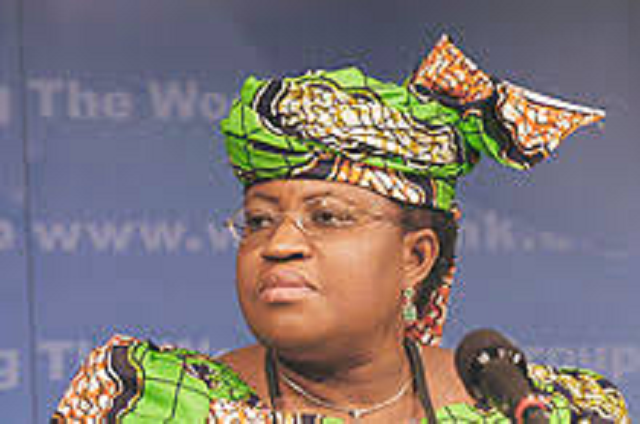Nigeria’s former finance minister, Ngozi Okonjo-Iweala remains the favourite for the job of director-general of the World Trade Organisation as the body’s General Council meets next Tuesday to reduce the five candidates still in the race to two.
Okonjo-Iweala; Saudi Arabia’s former minister of economy and planning, Mohammad Maziad Al-Tuwaijri; UK’s former secretary of state for international trade, Liam Fox; South Korea’s Trade Minister, Yoo Myung-hee; and Kenya’s former international trade minister, Amina Mohamed are the aspirants still in the race.
Three candidates, including Mexico’s Jesus Seade, Egypt’s Hamid Mamdouh, and Moldova’s Tudor Ulianovschi were dropped last month as the Geneva-based organisation said they did not secure enough support in a first of three rounds of voting.
Next week, the five aspirants who jumped the first hurdle to replace Roberto Azevedo, who stepped down as the WTO director-general a year ahead of schedule, will be whittled down to just two after a second elimination round.
The remaining five contenders are either current or former ministers, something that trade officials had previously said was an important characteristic for a future Director-General.
Okonjo-Iweala’s high professional/personal qualities, international contacts and impeccable records as Nigeria’s former finance minister/foreign affairs minister and as former managing director of the World Bank, stand her above other contestants, argue pundits familiar with the voting preferences of WTO’s Governing Council.
“Aside from Okonjo-Iweala, no other contestant has ever worked or held a key position in a major international body like the World Bank. In addition, Okonjo-Iweala worked as foreign affairs minister. All her opponents have no international career record,” added another pundit.
There is no requirement for a regional rotation of the WTO chief position.
But there have been calls for an African to finally get a shot at running the organisation, which has counted three director-generals from Europe, and one each from Oceania, Asia and South America since its creation in 1995.
The WTO aims to select a winner in November, but some have voiced fear that increasing politicisation of the WTO, which relies on consensus to reach decisions, could draw out the process.
Whoever is handed the job in the end will be taking over an organisation mired in multiple crises, and struggling to help members navigate a severe global economic slump triggered by the Coronavirus pandemic.
The campaign to lead the WTO during the most turbulent period of its 25-year existence is playing out against the backdrop of the pandemic, a worldwide recession, the US-China battle for trade supremacy, and the American presidential election.
The vacancy offers an opportunity for the US, the European Union, and other nations to reshape the organisation, whose mission of economic integration is under threat from protectionist policies around the globe.
Without reform, the WTO risks being sidelined during the biggest economic crisis in a century.
Source: THISDAY












